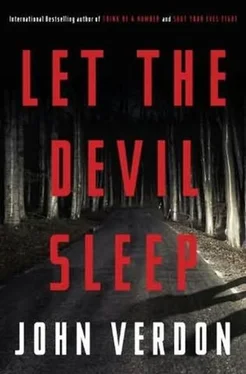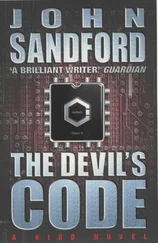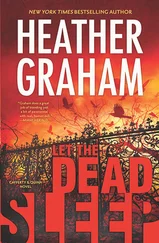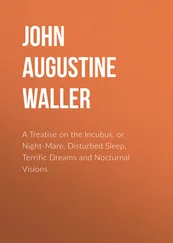“Which one?”
“You asked me to find out if Paul Mellani had any registered guns.”
“And?”
“He has one handgun. A Desert Eagle.”
For most of Gurney’s half-hour homeward drive from Dillweed to Walnut Crossing, he could think of little else. But as startling as the discovery was, it was more troubling than actionable. Rather like discovering that an ax murderer and his victim, previously believed to be unconnected, had shared a desk in kindergarten. Attention-getting, but what the hell did it mean?
It would be important to know how long Mellani had owned the gun. However, the record accessed by Hardwick’s colleague, showing a currently valid concealed-carry permit, did not indicate the original application date. Calls to Mellani’s office number and cell number had both gone into voice mail. Even if the man chose to return the calls, he was under no obligation to explain his unusual choice of sidearm.
Obviously this curious new fact exacerbated Gurney’s original concern: that depression and easy access to a firearm could be a high-risk combination. But “concern” was all it was. There was no hard evidence that Paul Mellani was a credible danger to himself or others. He had said nothing-uttered none of the key phrases, none of the psychiatric alarm words-that would justify notifying the Middletown police, nothing that would justify any intervention beyond the personal calls that had been made.
But Gurney kept thinking about it-imagining the probable content of Kim’s contacts with the man prior to their Saturday meeting, her letter and phone call explaining her project. These reminders of his father’s death-reminders of his father’s apparent lack of concern for him-may have focused him on the emptiness of his life, the sinking ship of his career.
Lost in the miasma of depression, might he be planning to end it all? Or, God forbid, perhaps he already had? Perhaps that’s why the calls went into voice mail?
Or what if Gurney had it all backward? What if the purpose of the Desert Eagle wasn’t suicidal but homicidal?
What if it had always been homicidal? What if…
Jesus Christ! What if. What if. What if. Enough! The man had a legal permit to possess a legal handgun. There were millions of depressed people in the world who never came close to harming themselves or anyone else. Yes, the brand name of the handgun raised obvious questions, but these questions could be asked and answered when Mellani called back, which he surely would. Strange coincidences usually had pedestrian explanations.
Showtime
When Gurney arrived home at 2:02 P.M., Madeleine was out. Her car was still parked by the side door, which meant she was probably hiking one of the forest trails that radiated out from the high pasture.
During the final few miles of the drive, his obsession with Paul Mellani’s gun had subsided-only to be replaced by the echo of Hardwick’s Big Question: If the Good Shepherd murder spree wasn’t the psycho mission described in the manifesto, then what was it?
Gurney got a pad and pen and sat down at the breakfast table. Putting things on paper was the best way he knew to minimize mental overload. The next hour produced the beginning of an investigatory premise and a short list of “starter” questions that might open up avenues worth exploring.
PREMISE: There are irreconcilable differences in thought processes and style between the efficient, machinelike planning and execution of the murders and the sententious, fake-biblical pronouncements of the manifesto. True personality is revealed by behavior. Brilliance and efficiency can’t be faked. The disconnect between the killer’s way of acting and his emotional psycho-mission-based explanation of that action suggests that the explanation may be false and designed to distract attention from a more pragmatic motive .
QUESTIONS:
If not because of their “greed,” why were these victims chosen?
What is the significance of the similar vehicles?
Why did the murders occur when they did, in the spring of the year 2000?
Was the sequence in which they occurred significant?
Were they all equally important?
Were any of the six necessitated by any of the others?
Why such a dramatic weapon?
Why the little plastic animals at the shooting sites?
What lines of inquiry did the arrival of the manifesto cut off?
Gurney looked over what he had written, knowing that it was the barest beginning and not expecting an immediate breakthrough insight. He knew that “Aha!” moments never occurred on demand.
He decided to share his list with Hardwick to see what kind of response it would provoke. And with Holdenfield, for the same reason. He wondered about giving a copy to Kim and decided not to. Her goals were different from his, and his questions would only upset her again.
He went to his computer in the den, wrote separate introductions on e-mails to Hardwick and to Holdenfield, and sent them. After he printed a copy to show to Madeleine, he stretched out on the den couch and fell asleep.
“Dinner.”
“Hmm?”
“Dinnertime.” Madeleine’s voice. Somewhere.
He blinked, gazed blearily up at the ceiling, thought he saw a pair of spiders gliding across the white surface. He blinked again, rubbed his eyes, and the spiders disappeared. His neck hurt. “What time is it?”
“Nearly six.” She was standing in the den doorway.
“Jesus.” He sat up slowly on the couch, rubbing his neck. “Dozed off.”
“You certainly did. Anyway, dinner’s ready.”
She returned to the kitchen. He stretched, went to the bathroom, splashed cold water on his face. When he joined her at the table, she’d already laid out two large bowls of steaming fish chowder, two green salads, and a plate of buttery garlic bread.
“Smells good,” he said.
“Have you reported the bugs to the police?”
“What?”
“The listening devices, the trapdoor in the ceiling-has anyone notified the police?”
“Why are you asking about that now?”
“Just wondering. That stuff is against the law, right? Bugging someone’s apartment? If it’s a crime, shouldn’t it be reported?”
“Yes and no. Should be, maybe. But in most cases there’s no legal requirement to report a criminal act, unless the failure could be interpreted as impeding an ongoing investigation.”
She stared at him, waiting.
“In this situation, if I were the investigating officer, I’d want everything left as is.”
“Why?”
“It’s a potential asset. A working bug that the bugger doesn’t know has been blown can give you a resource later for trapping him.”
“How?”
“By letting him listen to a setup conversation that would then make him do something that would identify or incriminate himself. So it could be useful. But that might not be the way Schiff or other detectives in the Syracuse PD would see it. They might just stomp in and blow the whole thing. Once I tell Schiff, it’s out of my control, and right now I’d like to hang on to every little plus I can.”
She nodded and sampled her chowder. “It’s good. Try it before it gets cold.”
He took his first spoonful and agreed it was very good indeed.
She broke off a chunk of garlic bread. “While you were napping, I read that thing you left on the coffee table by the couch, with your questions about the case.”
“I wanted you to.”
“You’re sure that the murders aren’t about what everyone thinks they’re about?”
“Sure enough.”
“You’re coming at the case like it was brand-new?”
Читать дальше












